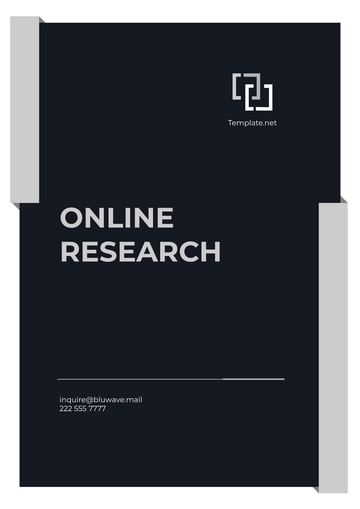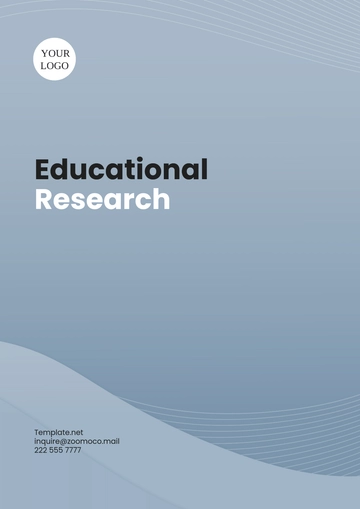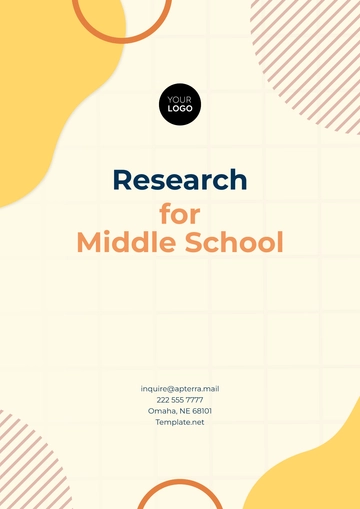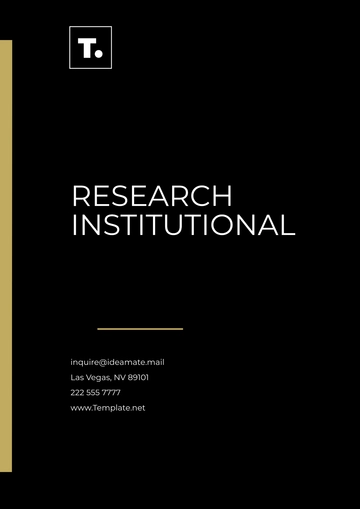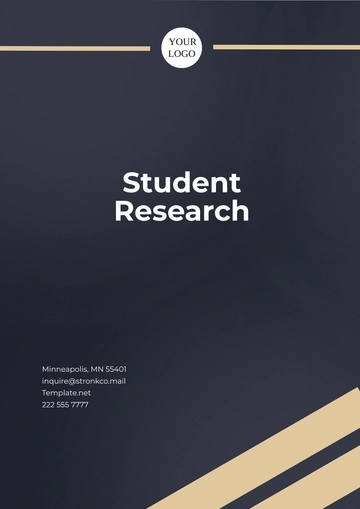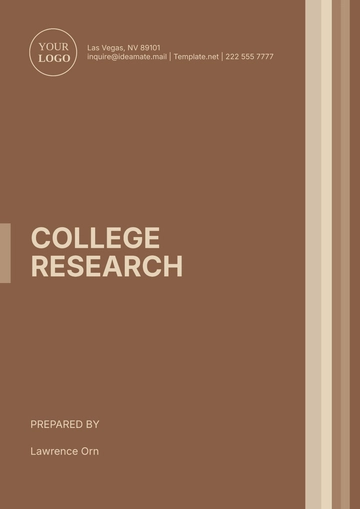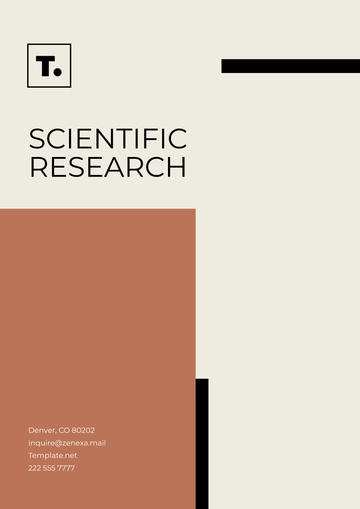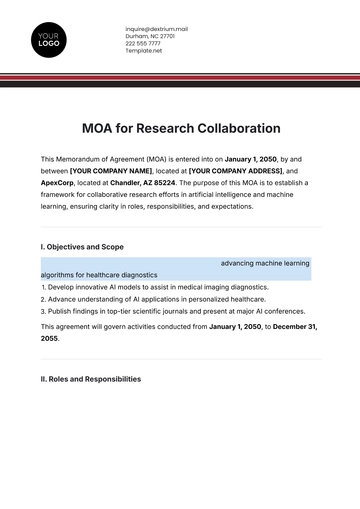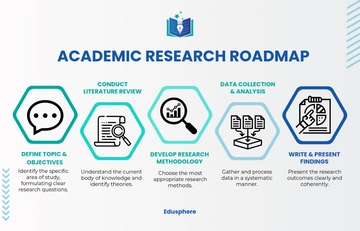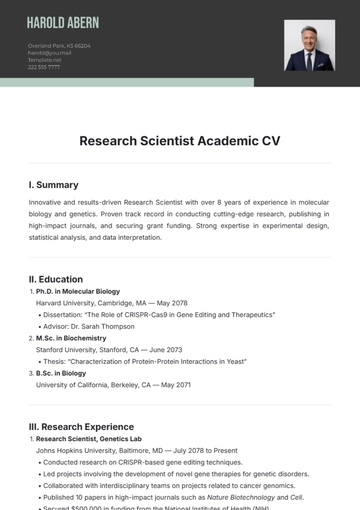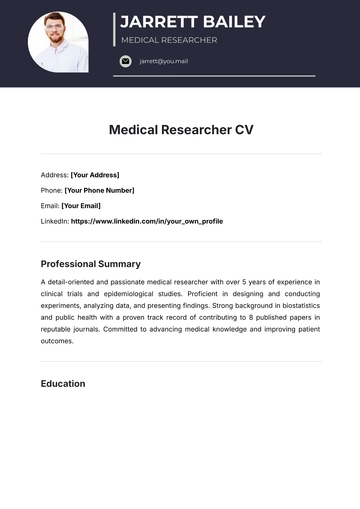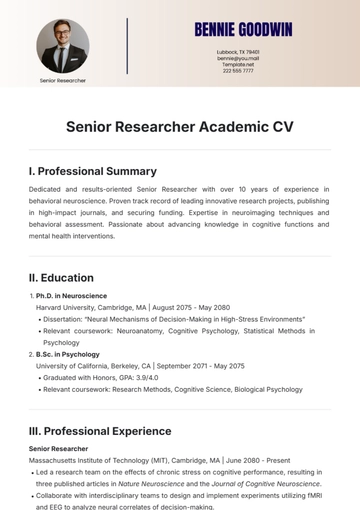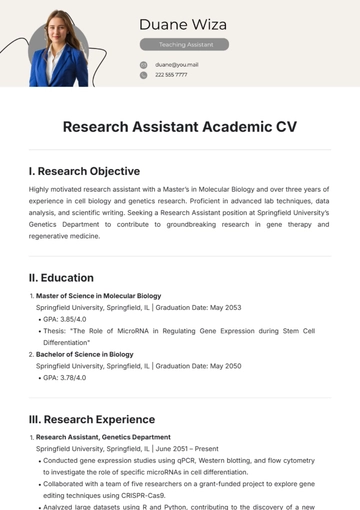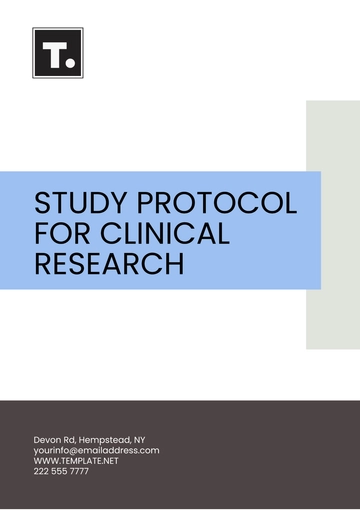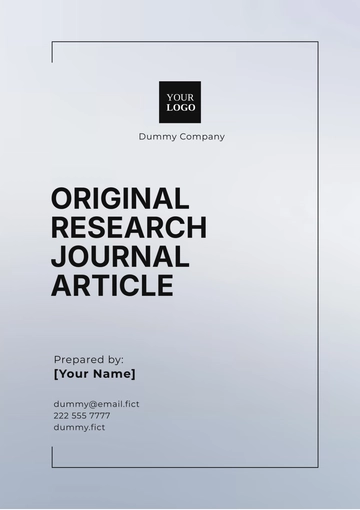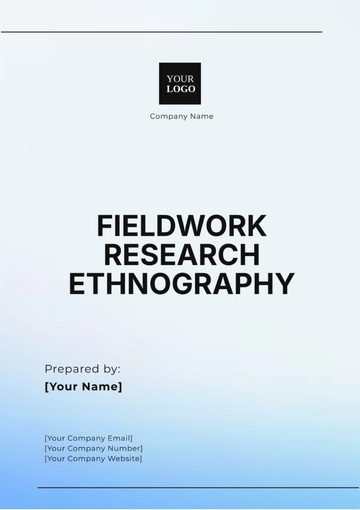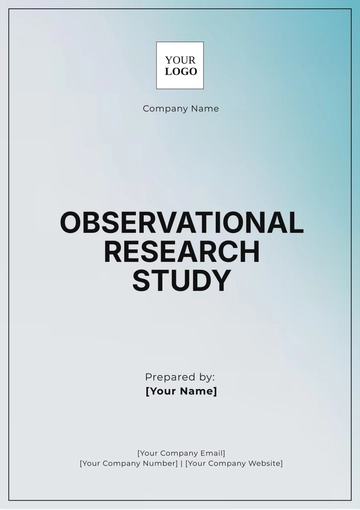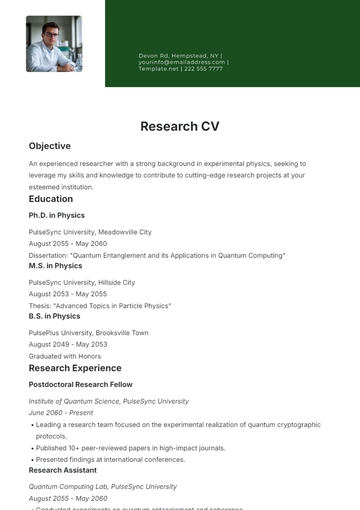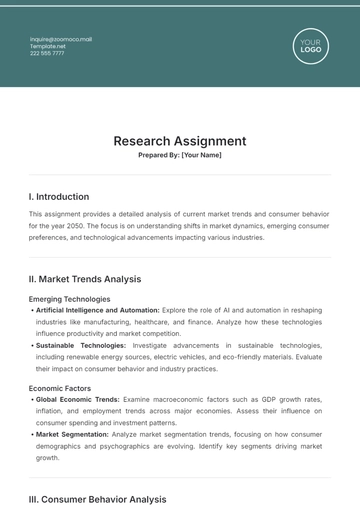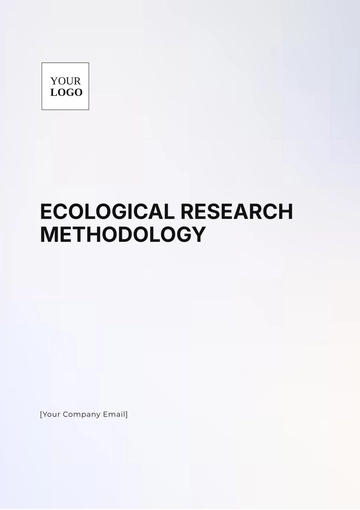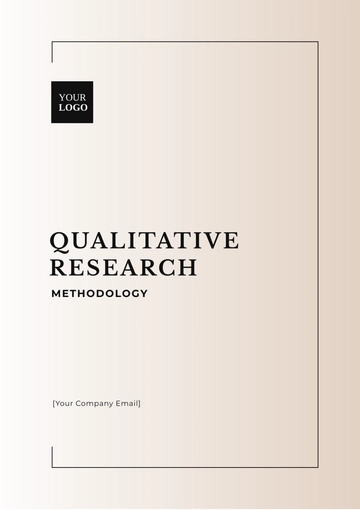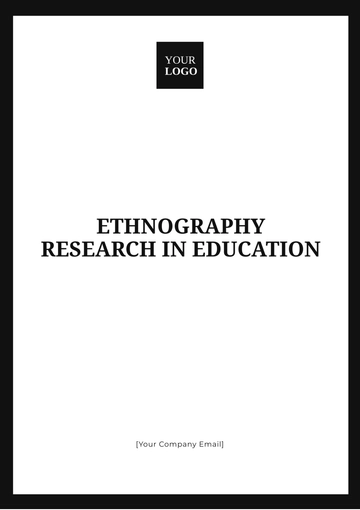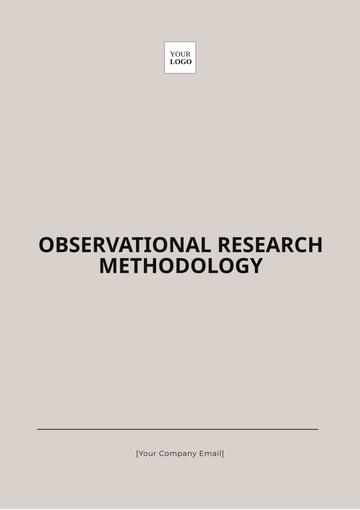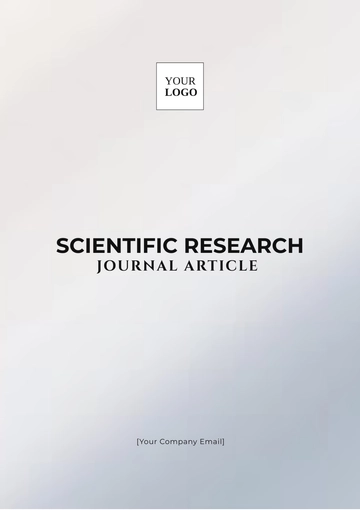Free Laboratory Researcher Criteria
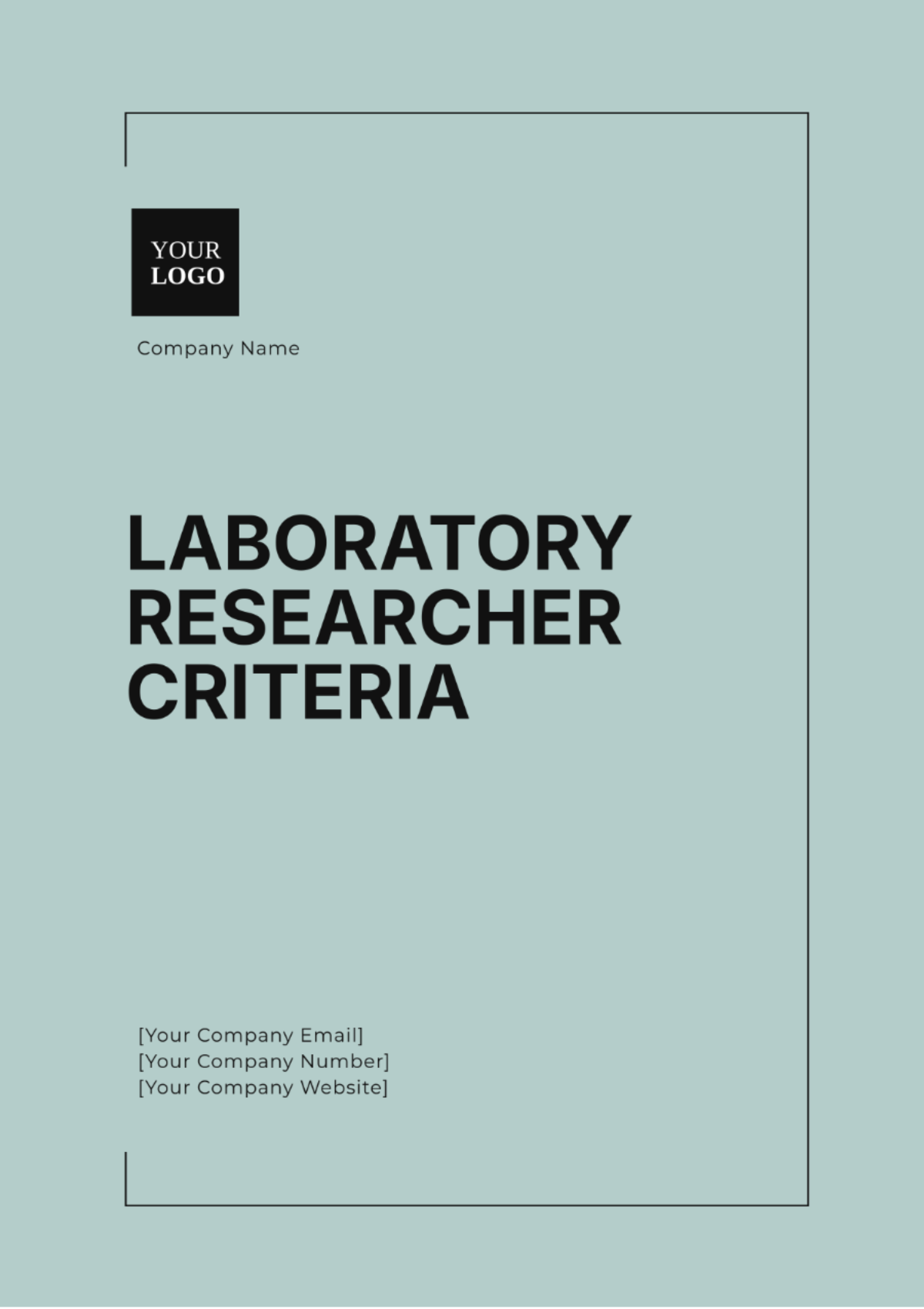
Prepared by: [Your Name]
Date: June 19, 2050
Introduction
The Laboratory Researcher plays a crucial role in scientific investigations and experimental studies. This document outlines the key criteria necessary for evaluating candidates for this position, ensuring that the best individuals are selected to contribute to our research objectives.
Purpose
The purpose of this document is to provide a clear and concise framework for assessing the qualifications and skills of potential Laboratory Researchers. It aims to streamline the recruitment process and ensure consistency in evaluating candidates.
Scope
This document applies to all candidates applying for the Laboratory Researcher position within our organization. It covers educational qualifications, technical skills, research experience, and other relevant competencies necessary for success in the role.
Criteria for Laboratory Researcher
Criterion | Description | Importance Level | Rating |
|---|---|---|---|
Educational Background | Minimum of a Bachelor’s degree in a relevant scientific field such as Biology, Chemistry, or Physics. | High | |
Technical Skills | Proficiency in laboratory techniques, equipment handling, and data analysis software. | High | |
Research Experience | Previous experience in conducting laboratory research and experiments, preferably in a similar field. | High | |
Analytical Skills | Ability to analyze complex data, draw conclusions, and make recommendations based on findings. | High | |
Attention to Detail | Precision in following protocols, recording data, and maintaining accurate records. | High | |
Problem-Solving Skills | Capability to troubleshoot and resolve technical issues that arise during experiments. | Medium | |
Communication Skills | Proficiency in writing reports, presenting findings, and collaborating with team members. | Medium | |
Safety Compliance | Knowledge of and adherence to laboratory safety protocols and regulations. | High | |
Organizational Skills | Ability to manage multiple projects and prioritize tasks effectively. | Medium | |
Critical Thinking | Capacity to question assumptions, evaluate evidence, and make informed decisions. | High |
Rating Scale
1 - Poor: Fails to meet requirements or expectations.
2 - Fair: Meets some requirements but lacks in key areas.
3 - Good: Meets most requirements and performs effectively.
4 - Excellent: Exceeds requirements with convincing performance in all areas.
5 - Outstanding: Far exceeds requirements with exceptional performance.
Evaluation Process
Application Review: Initial screening of applications to ensure candidates meet the minimum educational and experience requirements.
Technical Assessment: Evaluation of candidates' proficiency in laboratory techniques, equipment handling, and data analysis through practical tests or assignments.
Interviews: Conducting structured interviews to assess analytical skills, problem-solving capabilities, communication skills, and other essential competencies.
Reference Checks: Contact previous employers or academic supervisors to verify candidates' research experience and ethical conduct.
Final Selection: Based on the overall evaluation, the most suitable candidate will be offered the position.
- 100% Customizable, free editor
- Access 1 Million+ Templates, photo’s & graphics
- Download or share as a template
- Click and replace photos, graphics, text, backgrounds
- Resize, crop, AI write & more
- Access advanced editor
Introducing the Laboratory Researcher Criteria Template from Template.net! This fully customizable and editable template is designed to streamline your research documentation. Easily editable in our AI Editor Tool, it ensures precision and flexibility for your lab's needs. Perfect for researchers seeking a user-friendly solution to enhance productivity and maintain detailed records.


